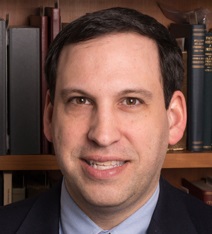By Bob Allen
Groups including an order of Catholic nuns and the agency that provides retirement and insurance plans for Southern Baptist ministers are asking the U.S. Supreme Court for the right to exclude contraceptive coverage in their employee healthcare plans.
The Becket Fund for Religious Liberty filed papers July 23 asking the high court to overturn a July 14 decision by the 10th U.S. Circuit Court of appeals that lawyers say runs contrary to their clients’ moral views.
The Affordable Care Act, also known as Obamacare, requires employers to provide coverage for “preventive care” for women, which according to rules issued by the Department of Health and Human Services must include the full range of FDA-approved contraceptives.
Recognizing that some religious groups oppose some or all of those methods, the regulation automatically exempts “religious employers” like churches, which exist to inculcate religious values and primarily employ and serve people who share their religious tenets.
Faith-based non-profits like hospitals and universities can avoid the requirement by providing notice of their moral objection to the government, which in turn requires a third-party insurer to provide the coverage at no cost to the employer.
Charitable organizations including Little Sisters of the Poor, a global Catholic order that cares for the elderly and GuideStone Financial Resources of the Southern Baptist Convention filed lawsuits claiming the opt-out provision substantially burdens their religious freedom.
 “In America, judges and government bureaucrats have no authority to tell the Little Sisters what is moral or immoral,” said Mark Rienzi, senior counsel of the Becket Fund for Religious Liberty and lead attorney for the Little Sisters of the Poor.
“In America, judges and government bureaucrats have no authority to tell the Little Sisters what is moral or immoral,” said Mark Rienzi, senior counsel of the Becket Fund for Religious Liberty and lead attorney for the Little Sisters of the Poor.
Rienzi said the government is fully capable of providing the coverage without help from the nuns in its own healthcare exchanges.
 The appellate court disagreed with those arguments, saying Little Sisters, GuideStone and other entities including Baptist-affiliated Truett-McConnell College in Georgia and Oklahoma Baptist University must obey the law or be subject to fines.
The appellate court disagreed with those arguments, saying Little Sisters, GuideStone and other entities including Baptist-affiliated Truett-McConnell College in Georgia and Oklahoma Baptist University must obey the law or be subject to fines.
In Thursday’s petition appealing to the Supreme Court, lawyers say their clients do not merely object to paying for or being direct provider of contraceptive coverage, but also “to facilitating, or being complicit in” access to contraceptives by transferring their own obligation on to others.
“Being forced to ‘comply’ with the mandate via the regulatory ‘accommodation’ is no more compatible with their religious beliefs than being forced to comply with that mandate directly,” the brief argues.
The appeals court didn’t buy that argument, finding that it is federal law and not the “self-certification” process that “triggers” or commences contraceptive coverage.
“Although a religious nonprofit organization may opt out from providing contraceptive coverage, it cannot preclude the government from requiring others to provide the legally required coverage in its stead,” the appellate court said in a 100-page ruling.
While acknowledging the groups have a “sincere” religious objection to the mandate, the appeals court said the opt-out procedure does not create a “substantial” burden required for them to prevail under the Religious Freedom Restoration Act of 1993.
The Beckett Fund said the Supreme Court will likely consider all petitions in late September or early October, and if it agrees to hear the appeal the case would be argued and decided before the end of the court’s term in June 2016.
